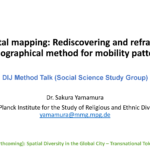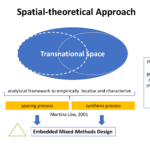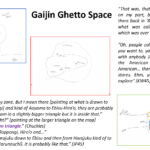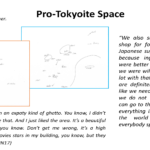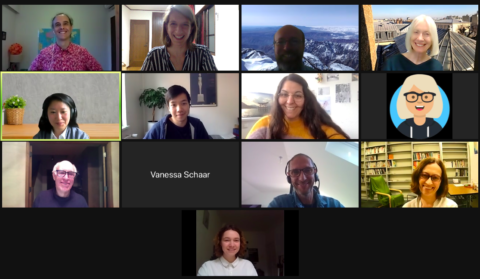
Download
Venue
Online (Zoom meeting)
Registration Info
This is a past event. Registration is closed.
Please subscribe to our DIJ Newsletter to stay informed about our research activities, events, and publications:
Mental mapping: Rediscovering and reframing a geographical method for mobility patterns
May 26, 2021
Sakura Yamamura, Max Planck Institute for the Study of Religious and Ethnic Diversity
The diversification in and of urban spaces through rising mobility is inevitable, yet the actual capturing of socio-spatial urban transformation is still methodologically underexplored. Though much has been discussed and researched on transnational spaces and mobility patterns, little is known about the actual extent of these spaces beyond network maps that depict the global connectedness of transnational communities with each other. In fact, the social geographical approach that is intended to account for the physical as well as the social aspect of space (Massey, 2013) methodologically poses an intellectual puzzle.
Based on the analytical framework of Martina Löw (2001), Sakura Yamamura employed the novel methodological tool of mental maps in her research on global and local mobility patterns. She combined it with 45 interviews with transnational migrant professionals in Tokyo, ethnographic site surveys and geographical mapping of specifically mentioned areas within the city. The mental maps were drawn by transnational professional migrants in order to capture the extent and locations of urban transformations, i.e. transnational space(s) constituted locally within the global city of Tokyo, but also globally within the network in global cities. In her presentation, she introduced the method of mental mapping and discussed how it can be connected to spatial theory to capture socio-spatial transformations and mobility patterns in Tokyo and beyond. In particular, she explained the two patterns of “Gaijin Ghetto Space” and the “Pro Tokyoite Space”. Her talk was followed by a lively discussion centering around methodological aspects, including the history of the method, pros and cons of triangulation with other qualitative methods, and field access.
Sakura Yamamura (PhD) is a postdoctoral researcher at the Max Planck Institute for the Study of Religious and Ethnic Diversity. With expertise in migration studies, urban and economic geography, her work focuses on the spatiality of social and economic activities in migrant-led diversification of society, particularly in cities. She is the author of “Spatial Diversity in the Global City – Transnational Tokyo” (Palgrave Macmillan, forthcoming) and articles in the Journal of Ethnic and Migration Studies and the Oxford Handbook of Superdiversity.
